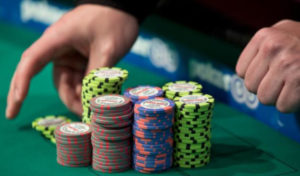It has been a rather dry spell in the aftermath of the WSOP’s main with players deciding to take a long-deserved holiday and not be bothered much with competitions. It’s quite understandable. After the grind of the fast few months, everyone feels at least a wee bit entitled to some laying low for a while. Insofar as these things go, there have been a few enthusiasts who have decided to keep playing.
The Spartan Poker tournament managed to conclude its latest edition of the millionaire tournament on Sunday. Part of the India Online Poker Championship (IOCP), the event was one of the most substantial poker competitions pulled off on the country’s soil and a possible gateway to future such events.
The Tally – IOCP Is a Success
And so, the IOPC ran from July 13 through July 22, featuring 55 tournaments and seven substantial cash prizes that would have whetted the appetites of any WSOP Main Event-goer. The buy-ins were not as low as you would have hoped for, but low enough for poker players of all stripes to afford them. An entry cost around $110.
Now, the prize pool itself wasn’t as impressive as the glitzy Western events, but with $146,048 in total cash, everyone stood a chance to grab a bite out of it as long as they could prove their merit.
It was one Nikhil Ramesh who managed to win first place with $36,500 of the total money going his way He faced off Hemanth Motepalli, who ended up as the runner-up, bagging $21,900 in the process.
Indian Poker, a Great Upswing
Indian poker has been experiencing positive trends with the interest in the segment growing. Organizations, such as Triton, have been vowing their full support for the game and have been hosting a series of games in order to revitalize poker in India.
With the poker scene world wild teeming with interest, and online practice games making it painfully easy to participate in satellite tournaments based on one’s merit, it’s easy to see why droves of players are now entering professional poker.
Riding the crest of poker’s popularity Triton is also intending to continue running events in India. Whilst the market is still not as open as players would like, the government is turning a blind eye to tournaments that have asked for permission and have been organized in specific areas.
A positive sign has been the recent push by the Law Commission of India for fully legalizing the game. The pro-lobby have been fighting a long battle with state lawmakers who have been rather suspicious of the game.
In poker’s defence, though, the supporters estimate that poker is a game of skill, which means that while money is staked, they cannot be staked in a matter that is reckless and self-destructive to the point video slots and other gambling games can. Partially true, poker does entail more skill, but it also can turn into a money sink. India will certainly seek social checks before poker is adopted en masse.







